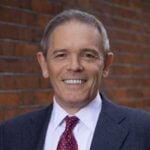A jury was selected Thursday to decide the mortgage fraud trial of former Baltimore State’s Attorney Marilyn Mosby.
Defense lawyers and prosecutors chose 12 jurors and four alternates from a pool of approximately 70 prospective jurors.
Over two days, the attorneys and U.S. District Judge Lydia Kay Griggsby asked prospective jurors questions aimed at eliciting their biases. Together, they probed jurors about their knowledge of Mosby and her charges, their thoughts on police and the criminal justice system, and their ability to apply bedrock legal principles like a defendant’s presumption of innocence.
The jury sworn in around 6 p.m. to fairly preside over Mosby’s trial is made up of men and women from different walks of life. There is a retired teacher and a property manager, a sales representative and a career tradesman.
Opening statements in Mosby’s case are scheduled for Monday.
Mosby is charged with two counts of mortgage fraud, with prosecutors alleging she made several false statements on loan applications for a pair of properties in Florida.
Another jury in November found Mosby guilty of two counts of perjury, determining she lied about having suffered financial hardship because of the coronavirus pandemic to get $80,000 from her city retirement fund. She used the money on down payments and closing costs for the Florida residences: An eight-bedroom house near Orlando and a condo on the Gulf Coast.
The jury last fall heard evidence of how Mosby obtained the money for the homes and how she spent it, but was tasked only with judging whether she lied to make herself eligible for withdrawals under the federal CARES Act, Congress’ first pandemic relief package.
This jury will hear minimal details of how Mosby got the money, and only must decide whether she lied on mortgage applications. The government has to prove she knowingly made false statements on those financial forms.
Her attorneys will argue she didn’t mean to lie.
Jurors this time won’t hear about Mosby’s perjury convictions unless she takes the witness stand. Though her testimony may be the most straightforward way for her to get her story across, taking the witness stand comes with serious risk for the defense, legal experts say. If she testifies, she’ll have to acknowledge being convicted of lying, and that could undermine her credibility.
One prospective juror, a retired lawyer who said he subscribed to three newspapers, said he had followed coverage of Mosby’s case closely. He expressed concerns about being able to judge Mosby impartially against the backdrop of her conviction.
“It’s hard for me to unknow that, if I’m in a courtroom and I’m thinking ‘Ok, Ms. Mosby’s been convicted of perjury and here she is and here is her defense,’… Do you understand, your honor, how I could be troubled?” he asked Griggsby.
Other prospective jurors said they wanted to hear Mosby tell her side of the story, and that they would hold it against her if she didn’t testify. Defendants don’t have to testify in court because they have a constitutional right against self incrimination, and jurors are instructed not to hold it against them — or even to discuss during deliberations — if they choose not to.
“If I thought that I was not guilty, I’d be the first one running to the microphone to defend myself,” another prospective juror said. “So if someone doesn’t testify, it’d make me doubt their innocence”
Before her perjury trial, Griggsby moved Mosby’s case from the federal courthouse in Baltimore to the one in Greenhouse. Defense lawyers argued Mosby would have a fairer trial with jurors selected from the area surrounding the Prince George’s County courthouse, citing pervasive media coverage about Mosby in and around the city where she held office for eight years.
Many jurors acknowledged having heard something about Mosby or her case, but few could recall specifics when Griggsby followed up with them in greater detail.
“I read something, I believe on the internet,” one prospective juror said. “Just that she had been accused of something, some wrongdoing.”
Another prospective juror said she remembered reading about mortgage fraud, but little else beyond that.
“There’s lots of details that need to be filled in before I have an actual opinion on this case,” the prospective juror said.
Because Mosby’s case centers on a dizzying array of mortgage documents, Griggsby asked prospective jurors whether they worked in the mortgage industry or had experience obtaining one for themselves.
“I wonder if she could’ve asked more questions to the mortgage company if everything was in order. Before you sign papers — I mean I have a mortgage too — you do ask questions,” the prospective juror said. “For me, the mortgage situation went pretty (smoothly). I mean I did have questions as far as my loan, the rate, things like that. I didn’t think it was very complicated.”
That juror knew of Mosby’s conviction, too, but was adamant she could be fair.
“You have to hear everything,” the prospective juror said.







